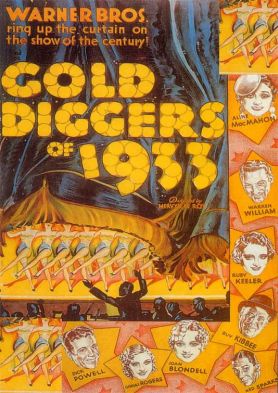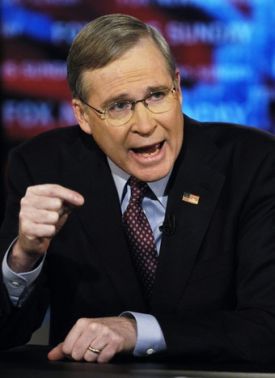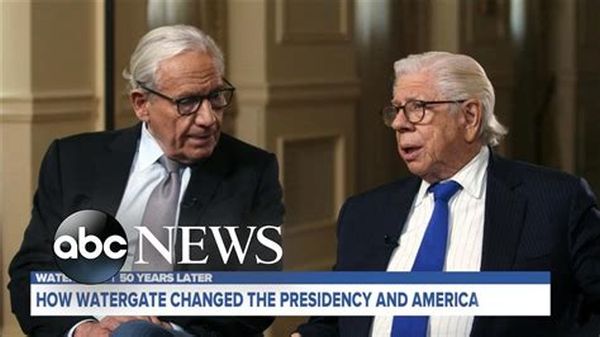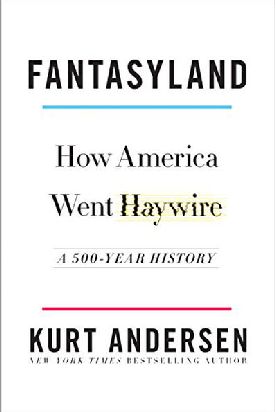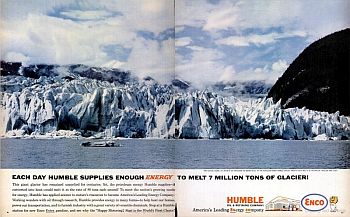Elite Escapism
From The American SpectatorCrappy days are here again
The skies above are drear again
So let’s sing a song of fear again
Crappy days are here again.
Since there’s no election on for a while — and, when there is, the economy will be the Obama administration’s responsibility — it would hardly seem to make sense for the media to be as gleeful as they have been in recent weeks to see in the economic downturn a re-run of the Great Depression. True, they like the idea of former President Bush’s being cast in the role of Herbert Hoover and President Obama that of Franklin D. Roosevelt, but the electoral benefits of the comparison are dubious and, at best, a long way off. No, I think they just like the mythology of the Great Depression in the same way that they liked the mythology of Vietnam at the height of the Iraq War. Nothing rings the media’s bell like the prospect of history’s repeating itself — as, in fact, history rarely if ever does in any meaningful way. But the opportunity to pretend that it does gives them the further opportunity to pretend that they understand the new things, and can explain them to the rest of us by comparing them with the old ones.
For those with a serious interest in the media’s mythology of the Depression, I can recommend Amity Schlaes’s book, The Forgotten Man, which is a corrective to it, but here I am more concerned with one small part of that mythology, which is the myth of “escapism.” As A.O. Scott characterized it in an interesting article titled “Reality Can Be Escapist, Too,” which ran in The New York Times around Christmastime, this was the idea
that Americans all went to the movies because the movies gave them what they needed. On every Main Street the Bijou or the Biograph showed double features that helped ease the sting of desperation and want. Hard-pressed, ordinary folks gratefully lost themselves in satiny, soigné comedies whose very titles — Trouble in Paradise, Easy Living — hinted of a glamorous, alluring world. There were also tough, socially conscious pictures, a lot of them produced by Warner Brothers and quite a few starring James Cagney. The Public Enemy, Angels With Dirty Faces — stories of crime, poverty and punishment delivered, especially once the Production Code came into force in 1934, with redemptive, morally affirming endings.
In fact, as Mr Scott points out, movie attendance fell during the early years of the Depression and only began to recover in 1934. Never mind. Everybody knows, or thinks he knows, that Hollywood got us through the Depression by producing all those Busby Berkeley or Fred Astaire-Ginger Rogers musicals or patriotic affirmations of one sort or another which allowed audiences borne down by the sufferings of actual poverty and unemployment or the fear of same to spend their few remaining pennies in order to escape them, if only in imagination. That is what would admit them into what must have seemed to them an ideal world of glamor, wealth and beauty which made them forget about the reality of their lives.
The problem with this belief lies in the word “reality.” No reality, no escape from reality. The assumption is that misery is real and glamor and the happiness it implies are unreal. Nothing but an escape. In the same spirit, Leonardo di Caprio gives voice to a fashionable assumption in Revolutionary Road when he says that “the whole idea of suburbia” is “to keep reality at bay.” But who is to say that fear and suffering are more “real” than security, wealth and happiness? Certainly not the audiences of the 1930s, for whom it would have been but a poor “escape” to contemplate for 90 minutes or so a felicity which they believed to be fanciful and unreal. On the contrary, it must have been just because they believed that the good things of this world were as real, and therefore as likely to come their way as the bad things, that they must have kept going to those musicals — which were, in any case, hardly blind to the hard times the country was enduring. Busby Berkeley’s “Forgotten Man” production number which ended Gold Diggers of 1933 was at least as memorable as the jokey but truncated “We’re in the Money” which began it.
The New York Times
’s Mr Scott couldn’t quite figure out what was escapist and what wasn’t, concluding that, although audiences “have a hunger to see reality depicted,” their idea of reality is, well, a bit unreal. As a result, “every movie, really, is an escape into someone else’s story.” This seems to me to be an attempt to fudge the question of “reality” which, judging by the movies I see, must be at least as unfamiliar to the movie-goers of today — and of the last couple of decades of prosperity as well — as it was to those of the Depression. A couple of weeks later, the Times also delivered the happy news that, in spite of recession, movie box office receipts for 2008 were down by less than one per cent over 2007 (though attendance was down five per cent) and that “the results were largely attributable to superheroes” —
either reinvented ones like The Dark Knight (the top moneymaker) or newcomers like Iron Man (the runner-up). Four computer-animated movies delivered giant returns, with Wall-E, Kung Fu Panda, Madagascar: Escape 2 Africa and Horton Hears a Who all in the top 10. A new franchise about a well-behaved teenage vampire was born to tiny Summit Entertainment in Twilight. And never underestimate a well-executed marketing campaign and a dollop of nostalgia: Indiana Jones and the Kingdom of the Crystal Skull overcame dreary reviews to sell $317 million in tickets and place third in the top 10. . .
So, no escapism for us then, it seems! This kind of stuff makes Gold Diggers of 1933 look like the grittiest of realism. And, turning to the prestige movies, I noticed that when the Oscar nominations were announced a couple of weeks later, the two movies thought to have the best chance of carrying away the Best Picture award, The Curious Case of Benjamin Button and Slumdog Millionaire were both out-and-out fairy tales.
I sort of liked the latter — certainly better than any of the other nominees, which included more liberal mythologizing about Watergate (Frost/Nixon) and the gay rights movement (Milk) as well as yet another Hollywood effort (The Reader) to squeeze some pathos, this time on behalf of an illiterate German sexpot and concentration camp guard, out of the Holocaust. All of them were escapist in their own way — a way that was not characteristic of the 1930s — and none of them more so than Slumdog Millionaire. People get confused, I suppose, because that movie throws in some scenes of torture and the horrific abuse of children, along with those of the teeming slums of Bombay. But the central characters, we know, will not be kept down, and the movie’s version of reality is getting, as Philip Larkin put it in his great poem, “Toads”, “The fame and the girl and the money/All at one sitting.”
“Toads” is about work, as opposed to unemployment, but it also takes the gloomy approach to reality which knows that the fame and the girl and the money are not for the likes of P. Larkin or his readers and which seems to be much more characteristic of prosperous times (“Toads” was written in the 1950s) than it is of economic hardship. Perhaps we simply incline to believe that reality is not what we experience today — which, indeed, always has something of an air of unreality about it — but what lies just around the corner, waiting for us. If so, it would fit well with the media’s pretensions to predict the future, their supposed knowledge of the things which are hidden, and their contempt for unlettered folks who don’t know any better than to engage in “escapism” to unreality.
In any case, if the myth of popular “escapism” of the 1930s lingers, like a bad smell, it must be because the media see some misleading lesson to be drawn from it. Here, for instance, is what Frank Rich of The New York Times characterized as “one subtle whiff of the Great Depression” in Barack Obama’s inaugural address:
His injunction that “we must pick ourselves up, dust ourselves off” was a paraphrase of the great songwriter Dorothy Fields, who wrote that lyric for Swing Time (1936), arguably the best of the escapist musicals Hollywood churned out to lift the nation’s spirits in hard times. But Obama yoked that light-hearted evocation of Astaire and Rogers to a call for sacrifice that was deliberately somber, not radiantly Kennedyesque.
What, exactly, do you suppose Mr Rich supposes is “escapist” — or, for that matter, “somber” — about the injunction to “Pick yourself off, Dust yourself off, Start all over again”? To me it sounds, simply, realistic.
Discover more from James Bowman
Subscribe to get the latest posts to your email.

